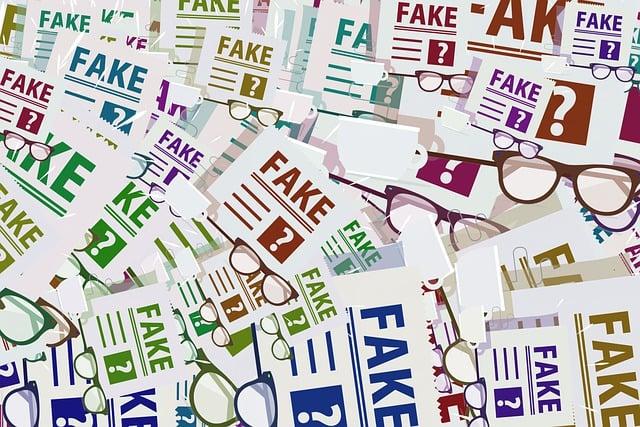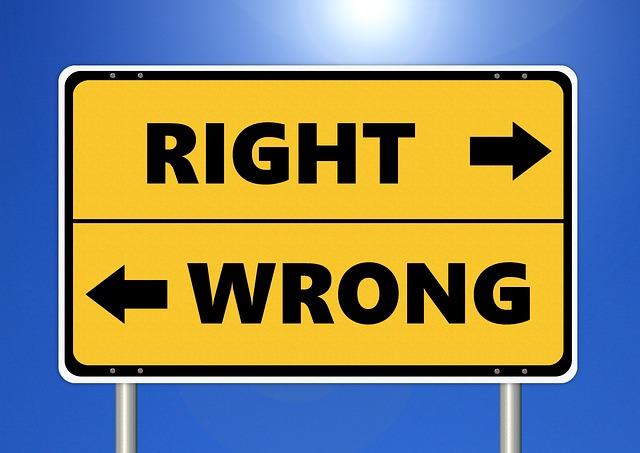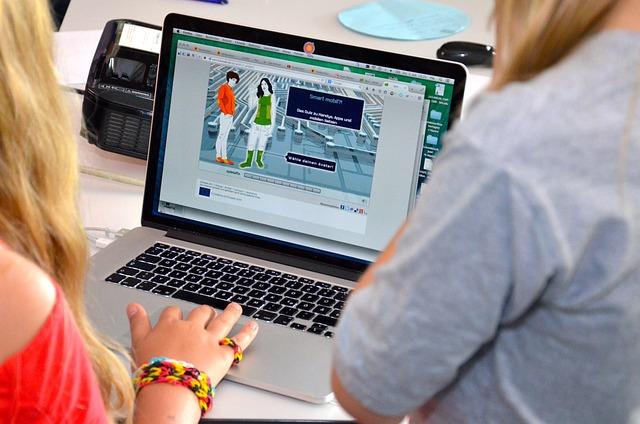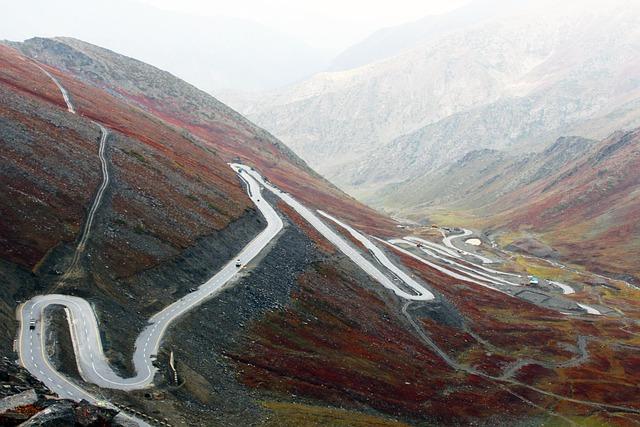In an era where the truth has become both a commodity and a battleground, the role of the media in shaping democratic values in Pakistan has never been more critical. As the nation grapples with a complex tapestry of political narratives, social unrest, and contrasting ideologies, the media stands at the crossroads, tasked with the formidable responsibility of informing the public while navigating a minefield of biases and influences. From traditional print to the digital revolution, the platforms through which information flows have expanded, yet the question remains: are they conduits of truth or mere reflections of power? In “Navigating Truth: Media’s Role in Pakistan’s Democratic Landscape,” we delve into how the media acts as both a mirror and a moulder of public discourse, examining its impact on the democratic fabric of a country that has known both resilience and turbulence. Join us as we explore the intricate dynamics at play, highlighting the challenges and responsibilities that define the media’s landscape in Pakistan today.
Exploring the Medias Influence on Public Perception and Political Accountability
In the intricate tapestry of Pakistan’s democracy, the media serves as a formidable thread, weaving together various narratives that shape public opinion and influence the political landscape. The channels through which information is disseminated are critical; they determine the clarity or obscurity of the issues at hand. With the power to spotlight governmental actions or bring societal injustices to light, the media plays a pivotal role in fostering transparency and accountability. However, the challenge lies in discerning truth amidst a sea of biased reporting and misinformation. The diverse mediums—from traditional newspapers and television broadcasts to social media platforms—create a complex ecosystem where the perception of reality can be manipulated, thus affecting the populace’s trust in political entities.
Furthermore, the interplay between media portrayal and public perception can significantly sway electoral outcomes and political stability. By highlighting certain narratives while downplaying others, media outlets can create a skewed representation of political figures and policies. For instance, arbitrary focus on corruption scandals versus developmental initiatives can lead to a public narrative that either vilifies or venerates a government. This dynamic can be summarized as follows:
| Media Focus | Public Perception |
|---|---|
| Corruption Coverage | Increased skepticism towards government |
| Development Initiatives | Enhanced approval ratings |
| Emergency Responses | Trust or distrust based on transparency |
As the landscape continues to evolve, it is crucial for citizens to cultivate media literacy, enabling them to critically assess sources and interpretations of news. Engaging in discussions and promoting independent journalism can further enhance public discourse, ensuring a well-informed electorate that holds political leaders accountable. In navigating this complex interplay, the media can either be a tool for democratization or an impediment to it, highlighting the necessity for a delicate balance between freedom of the press and responsibility in reporting. Such complexities underline the critical need for a resilient and informed society, equipped to filter noise and grasp the profound implications of media influence on governance and civic life.

Understanding the Challenges of Misinformation in Pakistans Evolving Democracy
In the context of Pakistan’s rapidly transforming democratic framework, the persistent shadow of misinformation poses substantial hurdles. Misinformation can undermine the very essence of democratic discourse by distorting public perceptions and influencing electoral outcomes. It thrives in an environment where digital communication is rampant, allowing falsities to spread far and wide with alarming speed. The rise of social media platforms has revolutionized information dissemination, presenting a double-edged sword. On one hand, it enables marginalized voices to be heard; on the other, it amplifies deceptive narratives that can polarize society and erode trust in institutions.
Addressing this challenge requires a concerted effort from various stakeholders. Media literacy campaigns can equip citizens with the skills to critically engage with the information they consume. Additionally, the role of fact-checking organizations emerges as vital in debunking myths and clarifying truths. Importantly, collaboration between governmental bodies, civil society, and media institutions can strengthen frameworks that promote responsible journalism. Some key strategies include:
- Implementing strict regulations against the spread of false news.
- Enhancing transparency in media ownership to build public confidence.
- Incorporating educational programs in schools to teach critical thinking.
| Type of Misinformation | Impact on Democracy |
|---|---|
| Fake News | Misleads public opinion, distorts democratic choices |
| Propaganda | Encourages polarization, undermines civic engagement |
| Deepfakes | Erodes trust in media and public figures |

Fostering Ethical Journalism for a More Informed Citizenry
In an age where information is just a click away, the responsibility of journalists has never been more crucial. Ethical journalism plays a pivotal role in ensuring that the public remains well-informed, allowing citizens to engage meaningfully in the democratic process. To foster this essential practice, media organizations must adhere to a set of principles that prioritize accuracy, fairness, and integrity. By emphasizing the importance of fact-checking, transparency in sourcing, and the representation of diverse viewpoints, journalists can cultivate trust with their audience. This trust not only strengthens the media’s role as the fourth estate but also empowers citizens to make informed decisions based on credible information.
Moreover, the commitment to ethical journalism can be further enhanced through structured education and training programs. By providing journalists with the tools to navigate complex societal issues and the skills to discern misinformation, media houses can contribute to a more informed populace. Key aspects that should be integrated into training include:
- Crisis communication: Equipping journalists with strategies to report during turbulent times.
- Media literacy: Teaching audiences to critically analyze media sources.
- Diversity and inclusion: Encouraging reflection on biases and fostering a comprehensive representation of society.
| Principle | Description |
|---|---|
| Accountability | Journalists must hold themselves accountable for the content they produce. |
| Transparency | Openly disclosing sources and methodologies builds public trust. |
| Impartiality | Balanced reporting ensures all relevant perspectives are heard. |

Strategies for Strengthening Media Literacy Among Pakistans Youth
To enhance media literacy among young people in Pakistan, it is essential to foster critical thinking skills and equip them with the tools necessary to navigate the complex media landscape. Workshops and seminars focusing on media analysis can empower students to critically evaluate news sources. By introducing concepts like bias, propaganda, and misinformation, participants can learn to differentiate between credible information and sensationalism. Additionally, utilizing interactive online platforms can make learning engaging and accessible. These platforms can host quizzes that challenge users to identify reliable sources, encouraging a deeper understanding of media consumption.
Furthermore, collaboration with educational institutions and local communities can yield substantial benefits. Partnerships with NGOs and media experts could bring about tailored content that resonates with local youth and addresses their specific challenges in media interpretation. Establishing mentorship programs where students can directly engage with journalists can provide insights into the ethical responsibilities of media professionals. Creating a culture of informed discourse through community forums and discussions on social media platforms can also play a pivotal role in building a more media-savvy generation, inspiring them to advocate for truth and accountability in reporting.
Key Takeaways
As we draw the curtain on our exploration of the intricate interplay between media and democracy in Pakistan, it becomes evident that navigating truth is not merely an act of discernment, but a vital pillar of informed citizenship. In a landscape marked by political turbulence and a diverse media ecosystem, the responsibility of both journalists and consumers of news is paramount. A nuanced understanding of media’s influential role can empower individuals to sift through the noise and seek out authentic narratives that foster democratic engagement.
In this age of information overload, where social media platforms compete for attention and narratives often clash, the quest for truth becomes even more challenging. It is here that critical thinking and media literacy emerge as essential skills, enabling citizens to distinguish between fact and fiction, and to advocate for a more transparent and accountable media framework.
Ultimately, the health of a democracy relies not only on the institutions that uphold it but also on the public’s willingness to engage with the truth. As Pakistan continues to navigate its unique democratic journey, the partnership between an ethical media and a vigilant populace will serve as a guiding light, illuminating the path toward a more informed and united society. In this intricate dance between power, media, and truth, every voice matters. Let us ensure that ours contributes to a chorus that celebrates democracy, diversity, and the enduring pursuit of knowledge.



